Research Activities
![]()
The Graduate School of History and Folklore Studies is a graduate school based on no specific faculty. As such, the Graduate School is characterized by the noticeable number of working students and students from abroad in addition to students straight from Kanagawa University.
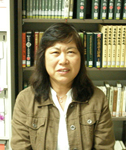
Chikako Takahashi
In only a little over a month after entering the Graduate School, I’ve already got in touch with many historical and other materials at each class, which forces me to think over my past recognitions and review the present society. I strongly feel it very important to analyze history from historical materials. Specifically, I’ve been struggling to decrypt letters in the classes of “Historical Documents (Early Modern Era).” It brings me a piece of joy when I successfully decrypt even a single letter and understand the sentence, as it makes me feel like visioning lives of ancient people through their words. In practicing repair of historical documents, which are evidences of history, I strive to work with sweat on my brow in tension. But this is only a start for me.
(Student in the masters course)
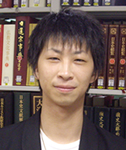
Eiji Matsuura, 1st Year Student in the Masters Course
I major in history, and am studying ancient culture related to Sake (alcohol). In addition to analyzing related literature, I consider the political and cultural exchanges conducted between Japan and the Tang Dynasty, inquire how the lifestyle and customs of people at that time concerning Sake changed, and investigate the causes of the change. By doing so, I give considerations to the Japanese culture itself from the perspective of folklore studies. Besides, the Graduate School has many students from abroad and realizes cross-cultural communications. This feature helps me to have a global viewpoint in understanding things, without being bound by fixed ideas on Japan.
(Student in the masters course)
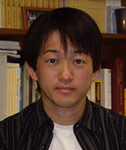
Kenichi Takakura, 1st Year Student in the Doctoral Course
At the Graduate School of History & Folklore Studies, you can advance your specialty capabilities in your own research areas under the guidance of instructors specialized in history or folklore. At the same time, the curriculum allows you to study beyond the categories of specialty areas, giving you the ability to consider things from broad perspectives. Moreover, you can obtain a global viewpoint through daily exchanges with students from abroad studying at the Graduate School, as well as by utilizing the student exchange program. Because of these, the Graduate School is a learning place that gives you the ability to see things from broad perspectives.
(Student in the doctoral course)
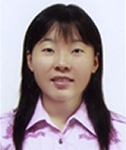
Bai Lili, 1st Year Student in the Doctoral Course
In the masters course I attempted to implement a “comparative study of the Obo faith in Mongolia and the 13 mound faith in Japan.” In preparing the report, I referred to documents and materials written by Japanese scholars and the Chinese forerunners who studied in Japan, and was strongly attracted by the research methods employed in the folklore studies in Japan. I want to continue the comparative studies on rock pile faiths, and will strive to do so based on the philosophy advocated by Professor Kenji Sano, who says “since you cannot see your back by yourself, you should have a perspective of outside yourself.”
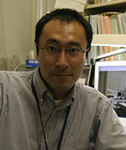
Hiroki Isomoto, curator (in charge of folklore) at Tokushima Prefectural Museum
Many students at the Graduate School of History & Folklore Studies naturally take the style in which they can find out something new through accurate observation and analysis of materials at their hands, not through the existing framework of studies such as “history” and “folklore.” As such, the colleagues I encountered at the Graduate School were all earnest and unique (at least in my case). The Graduate School had the atmosphere in which free thinking and fantastic development of thoughts were encouraged (true or false). The workplace I’m in now is a mixture of many areas in the history and natural history categories, and I guess the attitude I learned at the Graduate School is still active inside me in a useful manner.
(Graduated the masters course in the 2001 academic year)
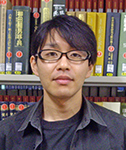
Shuhei Miyoshi, Curator, Omori Nori Museum
Curriculum of the Graduate School for History and Folklore Studies allows you to study an academic discipline such as history, folklore and nonwritten cultural materials that formed geographical areas, in a comprehensive manner. In addition to your own field of specialization, you can gain knowledge of a broad range of areas and learn how to utilize reference materials through hands-on activities: that is the strong point of the Graduate School for History and Folklore Studies. I currently realize through my job that what I learnt at the School correlates with each other significantly.
(Completed the doctoral program without a doctoral degree in 2013)


